JOURNEY WITH JESSICA
Words Matter
“Amazing grace, how sweet the sound.
That saved a wretch like me.
I once was lost, but now I’m found.
Was blind, but now I see.”
Possibly the most well-known and beloved hymn, “Amazing Grace” holds a sweet place in my heart. When sung, I can always hear my kind-hearted grandfather’s operatic baritone. In the last few weeks before his death from dementia I turned to the old hymns, his native language of music to make a connection. “Amazing Grace” became the last song we sang together just days before he moved on.
However, as a blind person, my heart cringed when sung as the recessional hymn last month. Blindness being used as a metaphor for wretched sin. Blindness meaning lost, separated from God. Sure, it’s a metaphor written in a very old song, but music has staying power, fueling the internalized ableism, pervasive in our society and churches.
How many songs, sermons, or liturgies have you heard that use the terms blind, deaf, lame, paralyzed or crippled? Once you begin to notice, it becomes prominent how common these terms are for “the undesirable.” It goes back to bad theology that makes disabilities and “imperfections” a mark of sin— something Jesus vehemently contested.
When disabilities are used as a metaphor, it places our disabled bodies in a place of “otherness.” There is an assumption that “those types of bodies” aren’t the ones sitting in the congregation. Truth be told, these metaphors are one reason we lack a more diverse representation of bodies in our congregations. Words lead to belief, that lead to actions that physically and socially exclude many with disabilities.
In the words of Stephanie Tait: “If you’re abled (meaning if you are nondisabled), you may feel like that’s being ‘nitpicky’ or ‘just looking for something to complain about.’ But when you’re disabled, you hear *yourself* being used as a metaphor for everything we’re hoping not to be, and everything we’re saying Jesus came to correct and undo.”
So what do we do with beloved music which contain words causing harm to God’s beloved people? One option is to change the language. In 2022 when Beyoncé released her new song, “Heated” she faced criticism from the disability community by including the word “spaz” in the lyrics. Beyoncé never considered the origin term’s link to spasticity, a medical term associated with cerebral palsy. However, she listened and apologized; replacing the word and re-recording the song.
For “Amazing Grace,” a replacement line people have tossed around is “was bound but now I’m free.” I have to be honest, imagining my grandfather singing those lyrics in Heaven make my [literally] blind eyes tear up. He is free.
Bridge Blogger Jessica Thompson
Categorised in: Journey with Jessica
